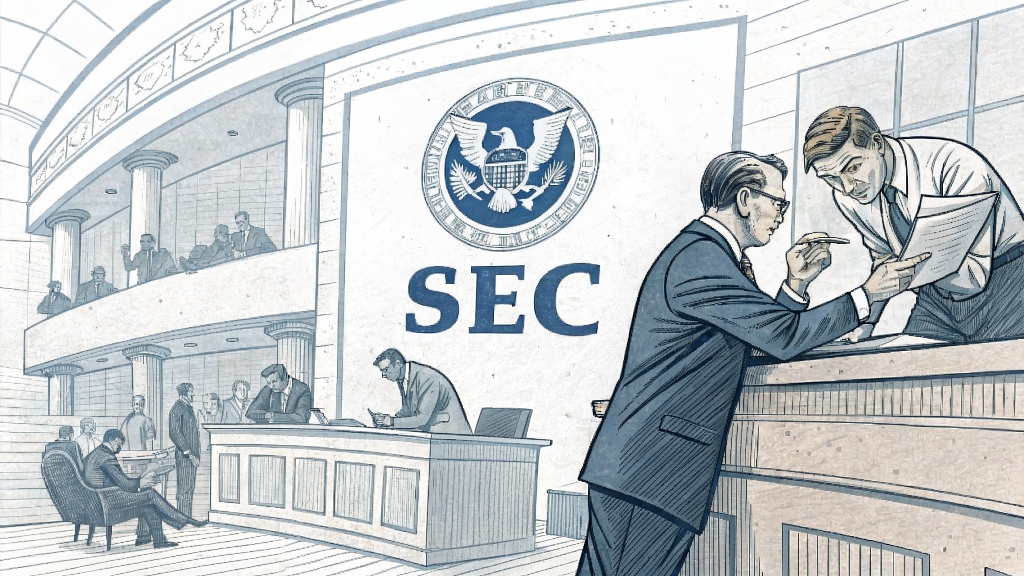
Regulatory Shift Signals New Era for U.S. Digital Asset Industry
In a landmark move that is reverberating across the cryptocurrency landscape, the U.S. Securities and Exchange Commission (SEC) has formally dropped charges against several major cryptocurrency exchanges. This decision, announced on June 10, 2025, marks a significant shift in the regulatory approach toward digital assets in the United States and is being hailed by industry leaders as a turning point for the sector.
A Historic Decision by the SEC
The SEC’s decision to drop ongoing legal actions against top crypto exchanges such as Coinbase, Kraken, and Binance US comes after months of intense negotiations and public debate. For years, the SEC has maintained a hardline stance, arguing that many digital assets traded on these platforms constituted unregistered securities. This resulted in a series of high-profile lawsuits, enforcement actions, and a climate of uncertainty that stifled innovation and investment.
However, the regulatory agency’s latest move signals a willingness to engage with the rapidly evolving digital asset space in a more collaborative and constructive manner. According to SEC Chair Gary Gensler, the decision was made “in recognition of the industry’s efforts to comply with emerging regulatory frameworks and to foster a more innovative, transparent, and secure financial ecosystem.”
Industry Reaction: Relief and Optimism
The response from the cryptocurrency industry has been overwhelmingly positive. Brian Armstrong, CEO of Coinbase, stated, “This is a watershed moment for the crypto industry in the United States. It shows regulators are listening to the concerns of innovators and are willing to work together to build a safe, robust market for digital assets.”
Jesse Powell, co-founder of Kraken, echoed these sentiments, noting that the SEC’s decision “removes a significant cloud of uncertainty that has hung over the industry for years.” He added that exchanges can now focus on expanding services, improving security, and driving adoption without the constant threat of legal action.
Investors and developers alike have welcomed the news, with many seeing it as a green light for renewed innovation and capital inflow. The announcement has already sparked a surge in new project launches, venture capital activity, and institutional interest.
The Path to Regulatory Clarity
The SEC’s move did not occur in a vacuum. It follows a series of legislative developments, including the recent passage of the GENIUS Act by the U.S. Senate, which aims to provide clear definitions and guidelines for digital assets. The Act establishes a framework for distinguishing between securities and commodities in the crypto space, giving exchanges and token issuers much-needed clarity.
Industry groups, including the Blockchain Association and the Crypto Council for Innovation, have played a crucial role in advocating for balanced regulation. Through public consultations, testimony before Congress, and engagement with policymakers, these organizations have helped shape a more nuanced understanding of blockchain technology and its potential benefits.
What This Means for Crypto Exchanges
With the SEC dropping its charges, major exchanges are now positioned to operate with greater confidence and stability. This regulatory clarity is expected to have several immediate and long-term effects:
1. Expansion of Services:
Exchanges can now introduce new products, such as staking, lending, and tokenized assets, without fear of sudden regulatory crackdowns. This opens the door for more innovative offerings and improved user experiences.
2. Enhanced Security and Compliance:
Freed from the distraction of litigation, exchanges can invest more resources into security measures, anti-money laundering (AML) protocols, and compliance infrastructure. This will help protect users and build trust with regulators.
3. Institutional Adoption:
With the regulatory environment stabilizing, institutional investors—such as pension funds, banks, and asset managers—are more likely to enter the crypto market. This influx of capital could drive further growth and maturity in the sector.
4. Global Competitiveness:
The United States, long seen as lagging behind jurisdictions like the European Union and Singapore in crypto regulation, now has an opportunity to reclaim its leadership role in fintech innovation.
The Broader Impact on the Crypto Ecosystem
The SEC’s decision is not just a win for exchanges; it has far-reaching implications for the entire crypto ecosystem. Token issuers, decentralized finance (DeFi) platforms, and blockchain developers all stand to benefit from a more predictable regulatory environment.
DeFi and Innovation:
Decentralized finance platforms, which have often operated in a legal gray area, can now pursue partnerships and integrations with centralized exchanges more openly. This could lead to a new wave of hybrid financial products that combine the best of both worlds.
Consumer Protection:
A collaborative regulatory approach allows for the implementation of robust consumer protection measures without stifling innovation. Clear guidelines can help prevent scams, hacks, and market manipulation, making the space safer for everyday users.
Education and Adoption:
With legal uncertainty reduced, educational initiatives and mainstream adoption efforts can accelerate. Schools, universities, and professional organizations are likely to expand their blockchain curricula, preparing the next generation of developers, entrepreneurs, and regulators.
Challenges and Next Steps
While the SEC’s decision is a major step forward, challenges remain. The agency has emphasized that it will continue to monitor the industry for signs of fraud, manipulation, or systemic risk. Exchanges will be expected to maintain high standards of transparency, reporting, and customer protection.
Moreover, not all digital assets are in the clear. The SEC has indicated that it will continue to evaluate new tokens and projects on a case-by-case basis, particularly those that exhibit characteristics of traditional securities.
Cross-agency coordination is also crucial. The Commodity Futures Trading Commission (CFTC), the Financial Crimes Enforcement Network (FinCEN), and state regulators all have roles to play in overseeing different aspects of the crypto market. Industry participants will need to navigate this complex regulatory landscape with care.
A New Era for U.S. Crypto Regulation
The dropping of charges against major crypto exchanges marks a pivotal moment in the evolution of digital asset regulation in the United States. By shifting from an adversarial to a collaborative approach, the SEC is sending a clear message: innovation and investor protection can go hand in hand.
This new era of regulatory clarity is expected to unleash a wave of innovation, investment, and adoption, positioning the United States as a global leader in the digital economy. For crypto exchanges, developers, and users alike, the future has never looked brighter.














